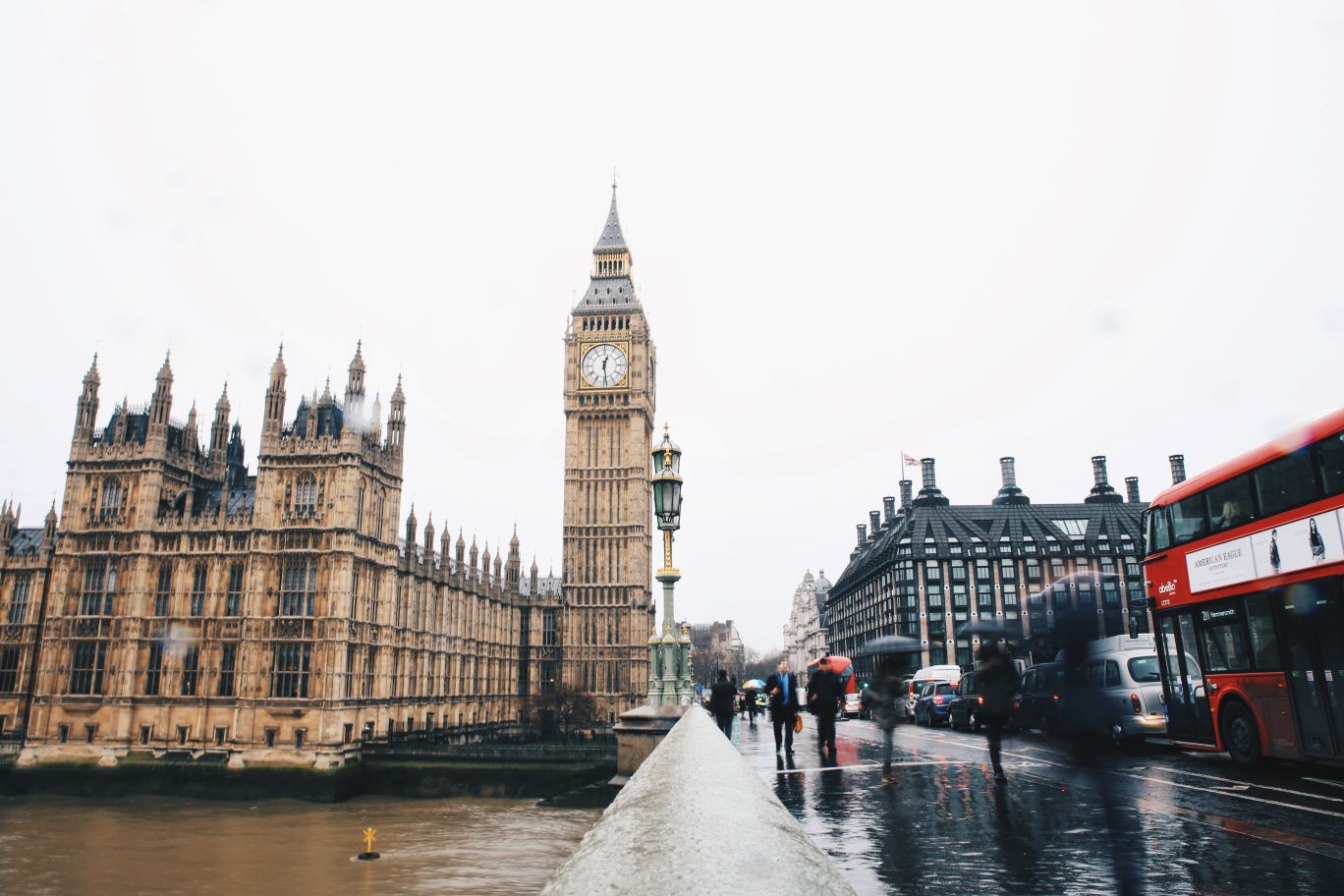In rece nt months, thousands marched in anti-austerity protests and thousands rallied in solidarity with refugees. Is the attendance of young people in such events signalling a sea change in youth political engagement, despite the low turnout in elections? Maria Grasso argues that although mass rallies put political activism in the news, empirical research shows that political disengagement amongst Britain’s youth continues to rise.
nt months, thousands marched in anti-austerity protests and thousands rallied in solidarity with refugees. Is the attendance of young people in such events signalling a sea change in youth political engagement, despite the low turnout in elections? Maria Grasso argues that although mass rallies put political activism in the news, empirical research shows that political disengagement amongst Britain’s youth continues to rise.
London has witnessed two rather large demonstrations in recent months. On 12 September, and joined by a victorious Jeremy Corbyn, the Refugees Welcome rally is said to have attracted over 100,000 protesters. On June 20, over 250,000 were thought to have joined the capital’s anti-austerity protests, with more attending similar events across the UK. While still a far cry from the record ‘million’ of the anti-war protest in 2003, the recent protests are still relatively very large for UK standards. But how do we make sense of these protests in the context of falling voter turnout and declining support for traditional political parties?
As I show in my new book, Generations, Political Participation and Social Change in Western Europe, there are quite marked differences between generations in their patterns of political participation, not just in the UK but also in other European democracies. The youngest generations – those that underwent political socialisation or came of age during the 1980s and 1990s – are much less politicised than older generations. I arrive at these new results by employing data from the European Values Study since the 1980s, and by applying new sophisticated statistical methods for the analysis of age, period and cohort effects.
The findings for institutional political participation, such as voting or joining parties, echo those of Robert Putnam for the US. Yet I break new ground in showing that younger generations are also less likely to engage in unconventional/informal/extra-institutional modes of engagement than those coming of political age in the more radical 1960s and ‘70s. Such modes include demonstrating, joining occupations or becoming engaged with the actions of ‘social movement organisations’.
This is an important if depressing finding for two reasons. First, the literature until now has generally assumed that the decline in formal participation amongst youth was not particularly concerning since young people just chose to engage differently – through informal channels. Second, the evidence from my study suggests that both formal and informal political involvement will continue to fall in the future, as these younger, less politicised generations come to replace the older, more civic generations in the population.
Generations coming of age since the progressive 1960 and ‘70s also seem to be markedly more conservative than the older, baby-boomer generation. In a paper co-authored with my colleagues Stephen Farrall, Emily Gray (School of Law, University of Sheffield), Colin Hay (Sciences Po, Paris) and Will Jennings (University of Southampton) we show that the generations that came of age under Thatcher-Major’s and Blair-Brown’s time in office – we call them ‘Thatcher’s Children’ and ‘Blair’s Babies’ – are much more economically right-wing than the generation coming of age before them – ‘Wilson/Callaghan’s Children’. In another paper we also show that they are much less likely to engage in political activities – including protest activism – than the generation socialised in the 1960/70s in Britain. The evidence from these studies further suggests that as Karl Mannheim wrote in 1928 in his famous essay on The Problem of Generations “nothing is more false than the usual assumption uncritically shared by most students of generations, that the younger generation is progressive and the older generation eo ipso conservative”.
So how do we make sense of such relatively large demonstrations in relation to these results from empirical research? Visibility is key: while large demonstrations put political protest and activism on the TV news, they can exaggerate impressions of political activism as a proportion of the population as a whole. Seeing young people in the protest crowd can suggest anecdotal evidence that they are politically engaged, but empirical evidence shows that the vast majority of young people in Britain have little or no contact with political bodies or political activities and only about 40 per cent turn out to vote. Instead, research suggests that it is individuals from the older, 1960-70s, baby-boomer generation who tend to spearhead protest movements – including those against austerity and in favour of rehoming greater numbers of refugees – that have emerged in Britain most recently. Therefore, recent demonstrations unfortunately do not yet signal a newfound youth political re-engagement but are rather simply the reflection of the greater politicisation – in their youth – of this older 1960-70s ‘protest generation’.
Note: This article gives the views of the author, and not the position of the British Politics and Policy blog, nor of the London School of Economics. Please read our comments policy before posting.
Dr M aria Grasso is Lecturer in Politics and Quantitative Politics at the University of Sheffield, and is the Deputy Editor of Mobilization (Western Europe). Her new book, Generations, Political Participation and Social Change in Western Europe is forthcoming with Routledge in early 2016.
aria Grasso is Lecturer in Politics and Quantitative Politics at the University of Sheffield, and is the Deputy Editor of Mobilization (Western Europe). Her new book, Generations, Political Participation and Social Change in Western Europe is forthcoming with Routledge in early 2016.
(Featured image credit: Paul de Gregorio CC BY-NC 2.0)








In the age of Internet & Social Media, the very concept of “pooitics” and “participation” needs rehashing : because nowadays the peiple/plebs/youth feel subjectively empowered even typing out a blog than being on the street march that’s organised by a party!
If you are going for best contents like me, only visit this web page everyday for the reason that it presents quality contents, thanks
Hi there very cool blog!! Man .. Beautiful .. Superb .. I will bookmark your site and take the feeds also? I am satisfied to seek out numerous helpful information right here in the publish, we want work out extra strategies in this regard, thank you for sharing. . . . . .
Obviously, researchers on this topic will need to extend this kind of research to speaking with youth through formal arrangements from schools, clubs to universities but if the presumption is that today’s youth likes a more personal, one on one relationship with political parties, either because of their own opinions formed through relationships (online or face-to-face) then I would thinkathe political parties of today will be able to pursue more innovative methods which they have probably started using already or looking into beyond smart phone technology. Personally, being a student of the 90s, I was never interested in demos nor when I moved to working in charities and campaigning organisations. Lobbying was and still is the main method of getting change as long as with an organisational emphasis on encouraging individual action and communication beyond the petitions provided by such organisations to show mass support for a change to law and policy.
PS. Stop using the wrong kind of photos for articles!!
If 40% turn out on less political participation than we see now, surely we will see increased turn out as political participation rises, just as has occurred in other countries in Europe where similar popular left wing movements have erupted? Likewise vast amounts are joining the Labour Party again and this should have some effect on political turnout too.
The experience of my own CLP is that we are getting recruits primarily from two sources – older members who had left under Blair and are now coming back, and newer members who are young and it seems often never voted at all but would nominally support the Greens. My own seat, one of the most marginal in the country, would probably go Labour now just from the increased members we have here – we are 100 votes behind the Tories who resorted to such desperate tactics as issuing election literature that never said their candidate was even a Tory and one leaflet through the door accused Miliband of being a secret SNP member!
I wonder too how much our local membership numbers had an affect on the last election and the 10% the Labour vote went up by, one of the largest in the country. In the election we had 2,000 members, and a further 1,000 non members volunteered on the campaign in this single seat. Now we have over 4,000 members and my own council ward has a size of over 300. Such political participation in Labour per capita comfortably rivals the SNP in Scotland which the author seems to have completely ignored.
Is the swing from Tories to Labour related in part to the amount of campaigners on the ground? This would perhaps be something interesting to study?
“but empirical evidence shows that the vast majority of young people in Britain have little or no contact with political bodies or political activities and only about 40 per cent turn out to vote.”
Well yes, the Power to the People report said after talking to young people and that was back in…2006? That report was pretty clear that young people were politically aware and concerned, they just didn’t see what mainstream politics had to offer them.
And I’d say that very little has changed since, as we’ve still to see what effect Jeremy Corbyn has on younger voters.